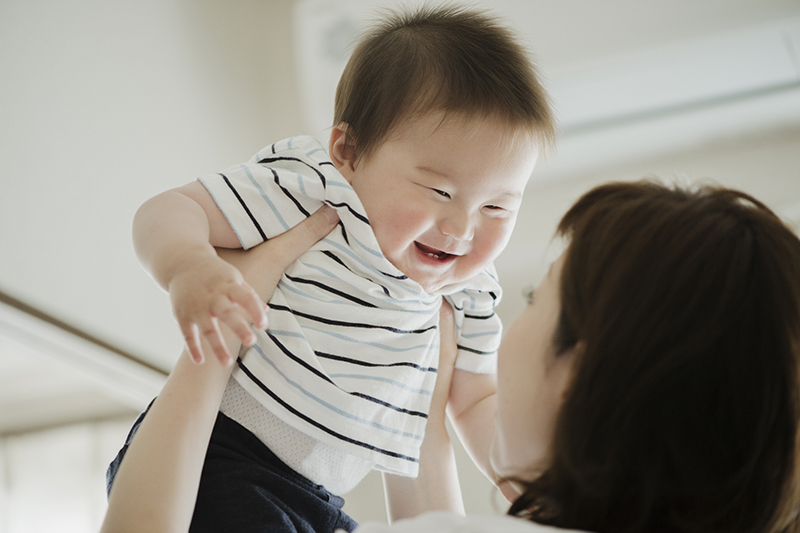Families For Life | Talking: Babies-Babies

From 3 to 18 months, your baby’s speech develops dramatically. Simple, enjoyable interactions and play ideas – like reading and singing – will encourage your baby’s talking and language skills.
What to expect from baby talking and language
Babies develop language at different rates – some learn quickly and others might need a bit more time.
As your baby starts to learn about language you might hear him:
cooing, gurgling and babbling
putting together simple sounds – for example, ‘ba-ba’
copying words
communicating ‘no’ with a shake of the head
At 12-18 months, most babies say their first words. But at this age, you and other close family members might be the only people who know what these words mean! Even though your baby’s words might not sound quite right yet, she still enjoys babbling happily when you talk and pointing out familiar objects.
By birthday number two, your baby has become much better at talking but some sounds might still be hard for him to say correctly, like the letter ‘r’. He might say it as ‘w’ instead – for example, it might sound like your child is saying ‘wed’ instead of ‘red’.
Encouraging talking skills is as easy as listening and talking to your baby. Sharing stories, songs, rhymes – even talking about your day – will all help your baby learn and practise language. Sharing these experiences with your baby also helps to build your relationship.
Play ideas to encourage talking
The more words children hear, the more words they can learn.
Here are some fun things to do together to encourage baby talking and language:
Chat to your baby about the things you’re doing around the house, even if you think they’re boring – for example, ‘Daddy’s vacuuming the carpet to get rid of the dust that makes you sneeze’.
Repeat your baby’s attempts at words to encourage two-way conversation – for example, if he says ‘mama’ you could say ‘mama’ back to him. You can also expand on basic words. For example, when baby says, ‘train’, you say, ‘Yes, it’s a big red train’.
Show interest in your baby’s babbling and talking by looking her in the eye and giving lots of smiles.
Share songs and nursery rhymes.
Praise your baby’s efforts to talk – for example, if your baby points to a dog and names it, you could say, ‘Well done for pointing out the dog, Jun Jie!’.
Diaper-changing is a great time for some face-to-face conversation with your baby – try talking, singing and looking at baby’s face as you change the diaper.
Concerns about baby talking
If you have concerns about your child’s language development – for example, your baby doesn’t babble or doesn’t seem to listen when others are talking – you can talk to a child health professional. Health professionals can help you and your child work on many language and speech problems.
Sometimes delays in communication skills can be signs of more serious developmental disorders or developmental delay, including language delay, hearing impairment, intellectual disability and autism spectrum disorder. If you’re concerned, talk to your paediatrician or General Practitioner (GP) or another health professional.
Video: The Initial Stages of Language Development
Watch this video and learn the importance of communicating with your baby, and how it helps her learn and develop.
Video: Language Development: Tips and Milestones
Watch this video and learn tips to support your child at each milestone of language development.
© raisingchildren.net.au, translated and adapted with permission
Explore more